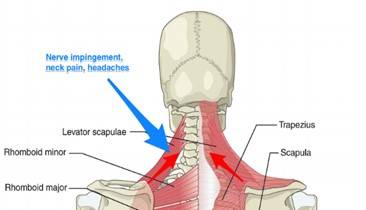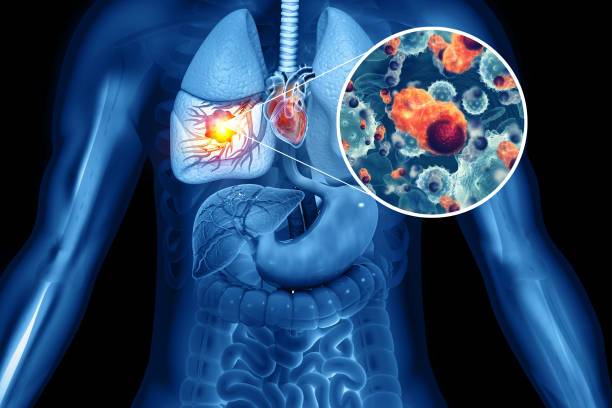GERD (Gastroesophageal Reflux Disease): 4 Dangers
Gastroesophageal Reflux Disease (GERD)
In the bustling landscape of the modern era, where convenience and stress intertwine, an alarminghealth concern has silently taken center stage: Gastroesophageal Reflux Disease. This pervasive condition has become increasingly prevalent, impacting lives and well-being. In this article, we unravel the intricacies of GERD in the modern age, delving into its causes, effects, symptoms, and offering effective solutions for managing its challenges.

Understanding Gastroesophageal Reflux Disease: The Modern Culprit
In today’s fast-paced world, certain lifestyle factors have contributed to the rise of GERD. The prevalence of fast food, high-fat diets, irregular eating patterns, and overconsumption of acidic and spicy foods have set the stage for this condition. Additionally, obesity, which has become a global epidemic, places extra pressure on the stomach, promoting acid reflux and exacerbating Gastroesophageal Reflux Diseasesymptoms .
Gastroesophageal Reflux Disease, often dubbed Gastroesophageal Reflux Disease, is more than just an occasional bout of heartburn. It’s a chronic condition characterized by the reverse flow of stomach acid into the esophagus, causing irritation and inflammation. The fast-paced nature of modern living has brought forth certain triggers for GERD, including dietary choices, lifestyle habits, and the stressors that define our daily lives.
Empowering the Modern Individual: Preventing Gastroesophageal Reflux Disease
Prevention is the most potent tool in the fight against Gastroesophageal Reflux Disease. Embracing a holistic approach that includes mindful eating, regular physical activity, stress reduction, and proper sleep hygiene can significantly reduce the risk of developing Gastroesophageal Reflux Diseaseor manage its symptoms effectively.
Why GERD Flourishes in the Modern Era
Dietary Factors: The modern diet, rife with processed foods, high-fat content, and excessive consumption of acidic and spicy foods, has laid the groundwork for Gastroesophageal Reflux Disease. These dietary choices can weaken the lower esophageal sphincter (LES), the muscle that separates the stomach from the esophagus, allowing acid to flow back.
Obesity Epidemic: The modern era has witnessed an upsurge in obesity rates, which not only puts excessive pressure on the stomach but also contributes to the weakening of the LES. Obesity, often a product of sedentary lifestyles and unhealthy eating habits, further exacerbates Gastroesophageal Reflux Disease.
Stress and Lifestyle: Modern life brings with it a whirlwind of stressors—deadlines, multitasking, and digital connectivity. Stress can lead to an increase in stomach acid production and relaxation of the LES, setting the stage for Gastroesophageal Reflux Disease symptoms.
When Gastroesophageal Reflux DiseaseTakes Center Stage: Recognizing Symptoms
The symptoms of GERD can be varied and distressing, often mimicking other conditions. Common indicators include:
- Heartburn: A burning sensation in the chest, typically after eating or lying down.
- Regurgitation: Backward flow of stomach contents into the mouth, often accompanied by a sour taste.
- Chronic Cough: A persistent cough, particularly at night, triggered by the acid irritating the throat.
- Difficulty Swallowing: A feeling of a lump in the throat or discomfort while swallowing.
- Chest Pain: While different from heart-related chest pain, Gastroesophageal Reflux Disease-induced chest pain can be alarming and mimic a heart attack.
Effects on Health and Well-being: Beyond the Surface
GERD’s impact goes beyond mere discomfort. It can disrupt daily life in multiple ways:
- Sleep Disturbances: Nighttime symptoms, such as heartburn and coughing, can disturb sleep patterns, leading to fatigue and reduced overall well-being.
- Reduced Quality of Life: GERD can hinder social activities, affect meal enjoyment, and lead to feelings of isolation due to its symptoms.
- Esophageal Complications: Over time, chronic acid exposure can lead to inflammation, ulcers, and a condition called Barrett’s esophagus, which is a precursor to esophageal cancer.
Solutions and Treatment Approaches
- Lifestyle Modifications: Adopting a few key lifestyle changes can yield significant improvements. Eating smaller, more frequent meals, avoiding trigger foods, maintaining a healthy weight, and elevating the head of the bed can all help manage GERD symptoms.
- Dietary Awareness: Understanding the impact of certain foods can empower individuals to make smarter dietary choices. Foods like citrus, caffeine, chocolate, fatty foods, and tomatoes are common triggers.
- Medications: Proton pump inhibitors (PPIs), H2 blockers, and over-the-counter antacids can all temporarily relieve GERD symptoms. However, due to potential adverse effects, prolonged PPI usage should be considered with a healthcare provider.
- Surgical Options: In severe cases or when medications prove ineffective, surgical interventions like fundoplication can be considered to strengthen the LES and prevent acid reflux.
Minimizing the impact of Gastroesophageal Reflux Disease (GERD)
It involves a combination of lifestyle changes, dietary modifications, and, if necessary, medical interventions. Here are some strategies to help minimize the effects of GERD:
Lifestyle Modifications:
- Maintain a Healthy Weight: If you’re overweight or obese, losing weight can significantly reduce the pressure on your stomach and decrease the severity of GERD symptoms.
- Elevate the Head of the Bed: Elevating the head of your bed by about 6-8 inches can help prevent stomach acid from flowing back into the esophagus while you sleep.
- Avoid Tight Clothing: Tight-fitting clothing, especially around the waist, can put pressure on the stomach and worsen GERD symptoms.
- Avoid Lying Down After Meals: Wait at least 2-3 hours after eating before lying down or going to bed to give your stomach time to empty.
Dietary Changes:
- Identify Trigger Foods: Keep a food diary to identify foods that trigger your GERD symptoms. Common triggers include caffeine, citrus fruits, tomatoes, chocolate, spicy foods, and fatty or fried foods.
- Chew Thoroughly: Taking your time to chew your food thoroughly can aid digestion and reduce the risk of reflux.
Dietary Choices:
- Choose Low-Acid Foods: Options for foods that are less likely to trigger acid reflux, such as lean proteins, whole grains, non-citrus fruits, and vegetables.
- Avoid Late-Night Eating: Try to finish your last meal or snack at least 2-3 hours before going to bed to allow your stomach to empty before lying down.
Avoid Smoking and Alcohol:
- Give up Smoking: Smoking can loosen the LES, enabling stomach acid to flow back into the esophagus. Reducing cigarette use can assist with GERD symptoms and general health.
- Limit Alcohol Intake: Excessive alcohol consumption can irritate the stomach lining and contribute to acid reflux. Limit alcohol intake and avoid it close to bedtime.
Stress Management:
- Practice Relaxation Techniques: Engage in stress-reducing activities such as meditation, deep breathing, yoga, and mindfulness to help manage stress and reduce its impact on GERD symptoms.
Medical Interventions:
- Over-the-Counter Medications: Antacids, H2 blockers (like ranitidine), and proton pump inhibitors (like omeprazole) can provide temporary relief from GERD symptoms. Consult a healthcare professional before using these medications regularly.
- Prescription Medications: If over-the-counter medications are not effective, a doctor may prescribe stronger medications to reduce stomach acid production.
- Surgery: In severe cases where lifestyle changes and medications aren’t effective, surgical options like fundoplication can be considered to strengthen the LES and prevent reflux.
Conclusion: How long does GERD last?
Gastroesophageal Reflux Disease is a significant concern in the modern era, but it’s not insurmountable. Recognizing the triggers, understanding the symptoms, and adopting proactive measures can make a world of difference. The journey to managing GERD involves a holistic approach that encompasses lifestyle changes, dietary awareness, and, when needed, medical intervention. As we navigate the complexities of the modern world, let us reclaim control over our health and well-being, making informed choices that lead us towards a life unburdened by the discomfort of GERD.



